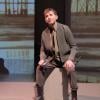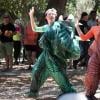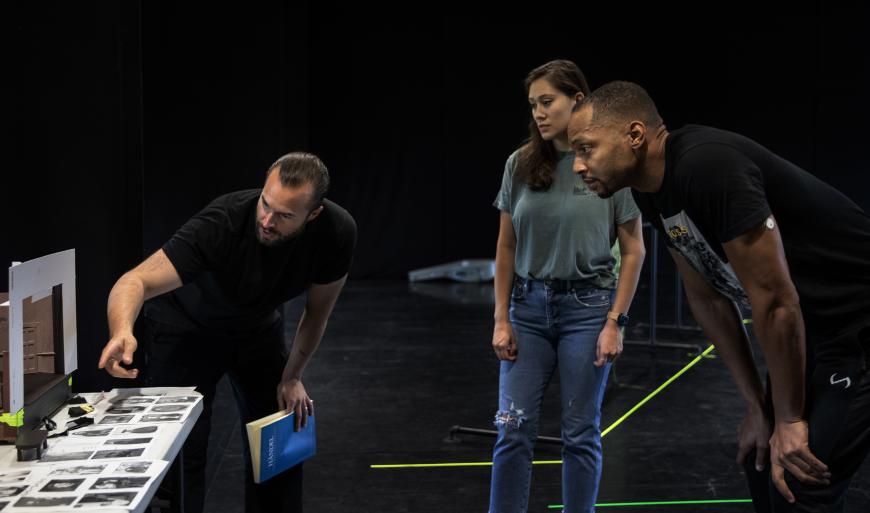
About 120 miles up the Hudson River from the Metropolitan Opera House, director R.B. Schlather is creating a local opera scene from the ground up. On Oct. 20 in Hudson, New York, a town of nearly 6,000 residents that’s famous for its antique dealers, Schlather and a team of collaborators — many Hudson Valley locals — will start a six-performance run of Handel’s domestic melodrama Rodelinda. It’s the first in a series of annual Handel productions that Schlather will mount in the newly refurbished Hudson Hall at the historic Hudson Opera House.
Hudson Hall lies at the center of the town’s active arts landscape, but it’s far from an opera house in the big-city sense. When the space first opened its doors in 1855, it served as Hudson’s city hall, complete with bank, library, and post office. And though officials named the building an “opera house” to follow the trends of 1880s Paris, the second-floor performance room played host to many more orators — among them Teddy Roosevelt, Ralph Waldo Emerson, and Susan B. Anthony — than famous musicians.
City hall moved up the street in the 1960s, and after a brief stint as a Moose Lodge, the space was bought by an out-of-town developer, who let it crumble. Only in 1992 did a group of concerned citizens begin fundraising for the space’s renovation. One room at a time, the landmark was returned to its inner beauty, and in 2017, a $9.5 million restoration of the performance space was completed.
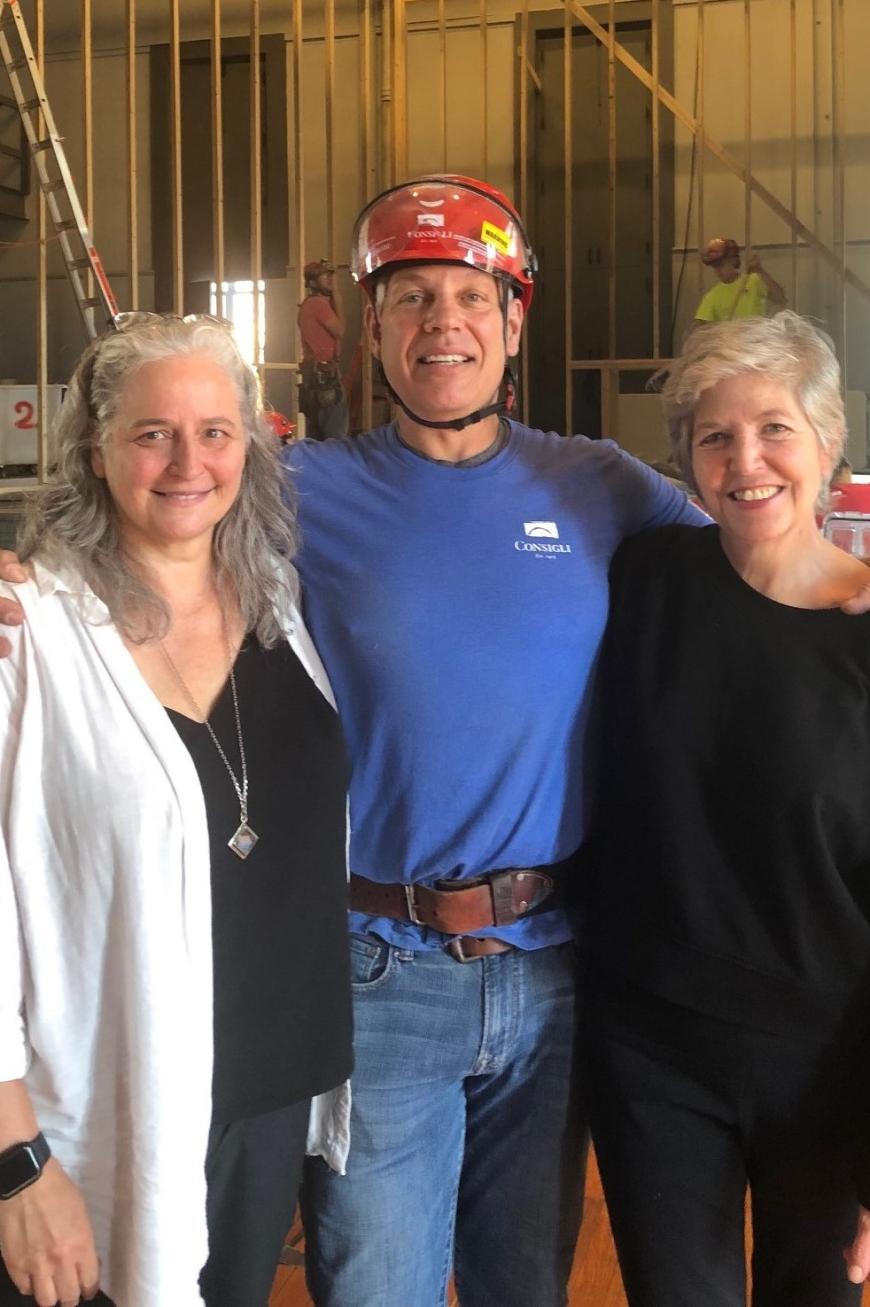
Upon reopening, Hudson Hall renewed its commitment to the town’s grassroots arts scene, balancing performance and community-oriented programming. “We’re a place-based organization. Our primary audience is the local community,” says Tambra Dillon, Hudson Hall’s executive director since 2018. (She joined the organization in 2013 as a co-director with Gary Schiro [executive director from 1998–2017], helping lead the last renovation charge.) “We’re fortunate to live in a region where so many amazing artists have moved, so we rarely bring in outside companies.”
One such artist is Schlather. Lately, the director has received much fanfare for his imaginative stagings in European opera houses, but for the rare weeks when he’s not on the road, Hudson has been his home base for nearly a decade. “It’s a town where people go who can’t do things by someone else’s rules,” Schlather says in a phone interview. “The people who set up small businesses here have a really personal point of view.”
Though Schlather is borrowing some big-city talent for his Rodelinda, many in the cast and crew have ties to the Hudson Valley. Several live in and around Hudson; those who don’t are forging local bonds through a rehearsal residency at the sprawling Kaatsbaan Cultural Park in nearby Tivoli. Consigli Construction, the company who executed Hudson Hall’s makeover, even offered to build the show’s set — free of charge.
Rodelinda is not the first time Schlather has drawn on the community for a production at Hudson Hall. To celebrate the new performance space’s inaugural season in 2017, he directed a production of Virgil Thomson and Gertrude Stein’s self-described operatic “pageant” The Mother of Us All, drawing on the building’s suffragist history. Schlather held open auditions for the opera’s 25 roles, and while Susan B. Anthony and the other lead parts went to local opera singers, he cast all sorts of community members in the smaller roles: teachers, Shakespearean actors, even a chef from an iconic local restaurant. The show was staged in the round on the new hall’s floor, the shiny hardwood temporarily bedecked in gray shag carpeting, audience members standing, sitting in chairs (some on the proscenium stage), and splayed across the ground.
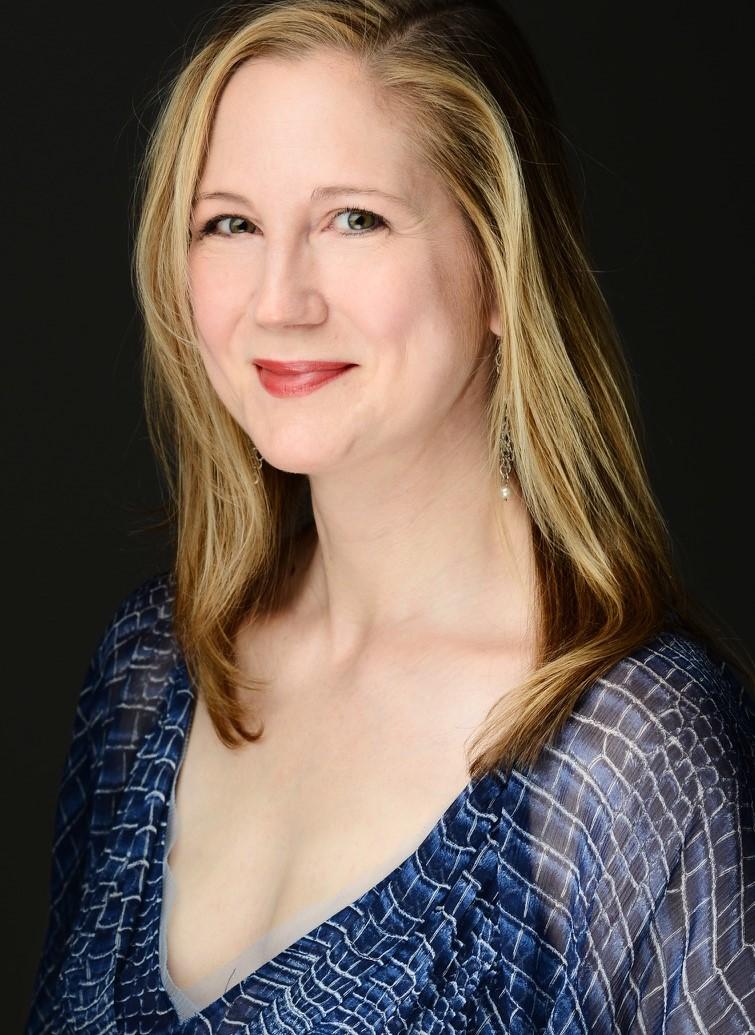
“It was unlike anything I’ve ever done,” says mezzo-soprano Teresa Buchholz. A 10-year Hudson local and an artist-in-residence in the voice department at nearby Bard Conservatory, Buchholz was the only person cast in both The Mother of Us All (as Anthony’s devoted companion Anne) and Rodelinda (as the double-crossed Eduige). She says she still reminisces with her fellow Mother cast members when she runs into them around town. “It was one of the most amazing experiences I’ve had as a singer.”
The show’s cozy, homegrown success was also met with wider acclaim. Both The New York Times and classical radio station WQXR numbered Schlather’s The Mother of Us All among their top classical performances of the year. The New Yorker’s Russell Platt suggested that the production “could float down the river to the big city” — but for an interpretation so site-specific, that was never the point.
Schlather didn’t get back to Hudson Hall before the pandemic shuttered performance venues, but once he was home with nothing to do, he began to chart his next local project: Handel. “I think Handel is the greatest opera composer, full stop,” he says. “I love the way he captures human spirit and emotion in his music. His stories happen on an intimate scale and focus on the complexities of being human.” That intimacy mapped perfectly onto the hall — with 350 seats, the audience, Schlather says, sits close enough to see the beads of sweat trickling down the cast members’ foreheads.
“I was conceiving this when it was unimaginable to ever be back in a theater with people again,” the director says. For him, the frightening drama of Rodelinda mirrors the ethos of those bleak early pandemic days: the chaos, the fear, the feeling of no help in sight. And most of all, Schlather craved the theater — proscenium, pit, and all.
That straight-ahead onstage direction is not how Schlather has gained his renown, especially with Handel. From 2014 to 2018, the director staged the “Ariosto trilogy” in immersive settings, positing open-door livestreamed rehearsals as performance art pieces in their own right. He produced Alcina and Orlando in Lower Manhattan’s WhiteBox art gallery — a space so white, one performer said at the time, that it “nearly causes snow blindness” — and moved to trailblazing Brooklyn warehouse National Sawdust for the final production, Ariodante.
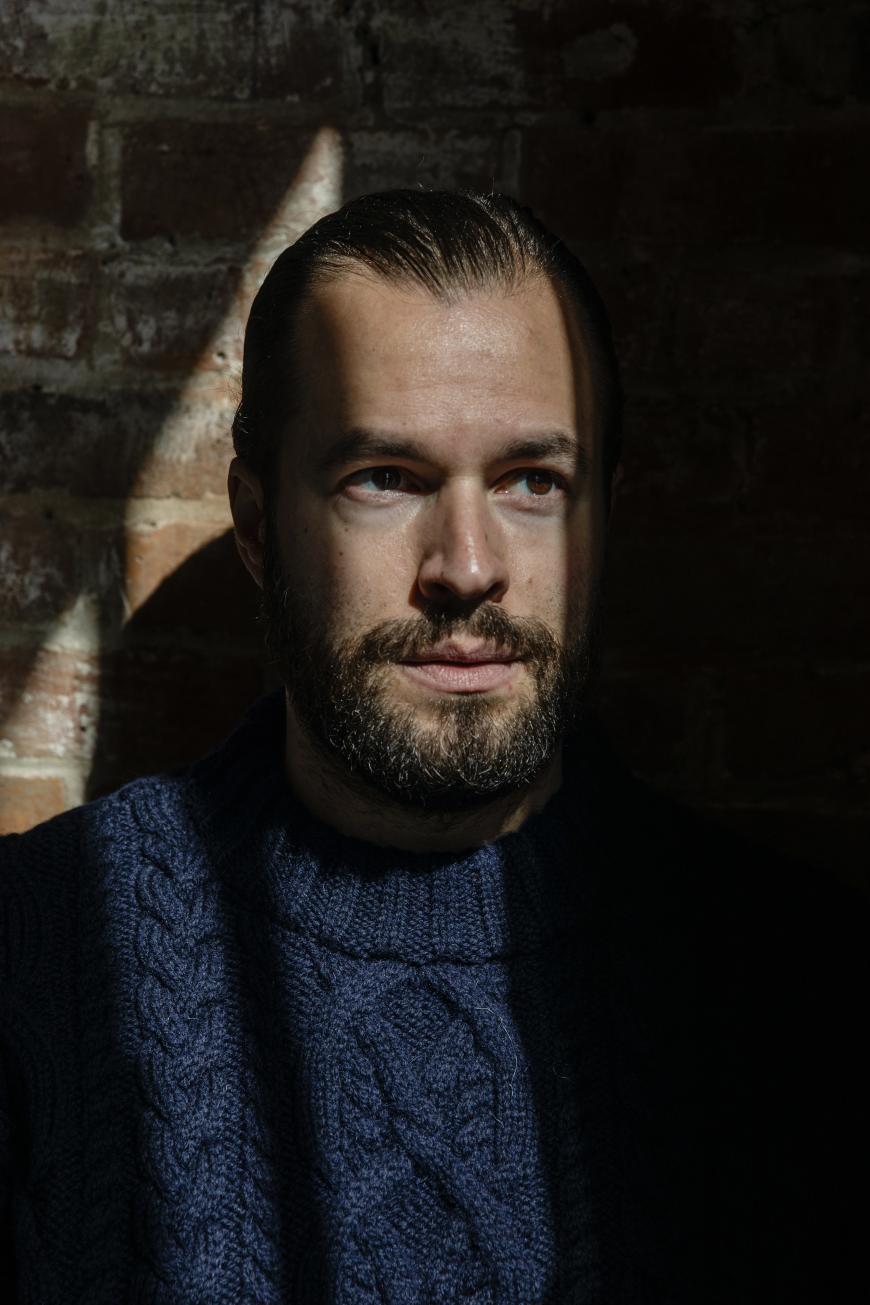
But with Rodelinda, Schlather is indulging the theatrical yearnings he felt during lockdown. His production gestures toward Victorian England without being too specific, maintaining a degree of unreal, imaginary fantasy. That Victorian nod, Schlather says, not only acknowledges Hudson Hall’s mid-19th-century origins but also situates the opera in a time when Handel’s following was at its most voracious.
So many opera directors, wanting for rehearsal time, jump straight to the stage once the singers are at their disposal. Schlather, however, begins each scene’s preparation with a step more associated with straight theater: table work. Together, the cast and director ponder the motivations and reactions of their characters, a process purposely oriented more toward questions than answers.
“Schlather is so invested in the emotional journey for each individual character,” says Hudson Valley-born mezzo-soprano Sun-Ly Pierce, who plays Rodelinda’s supposedly dead husband, Bertarido. “The context that he provides — and invites you to provide — makes the picture that much more vivid.”
Even less characteristically for an opera, the orchestra gets a place around the table from the very beginning — here, the continuo section of NYC Baroque band Ruckus. Schlather says he specifically chose the conductorless ensemble for its fresh, imaginative takes. The group has brought its wild imagination to sinewy Americana hymns, to Bach interpretations that channel circus calliopes and barnyard hoedowns, and most recently to a Hudson Valley square dance, where 18th-century fiddle tunes attracted celebrities like Frances McDormand.
“For me, opera is alive. It’s not historic,” says Schlather. “So, getting to work with musicians who have 18th-century specialties, but who do it with this kind of rock ’n’ roll energy, is really exciting.”
And though Ruckus rocks and rolls through Rodelinda’s fiery da capo arias, the ensemble’s first duty is as the “machinations of atmosphere,” as founder and Baroque bassoonist Clay Zeller-Townson terms it. The continuo quintet — keyboard, lute, cello, bass, and, unusually for Handel recitative, bassoon — has complete freedom to explore the many permutations and infinite timbres available to it, searching for novel ways to amplify the drama that Schlather sets onstage. “Schlather is interested in allowing that discovery to take place,” says keyboardist Elliot Figg, who also played on the director’s Ariosto trilogy.
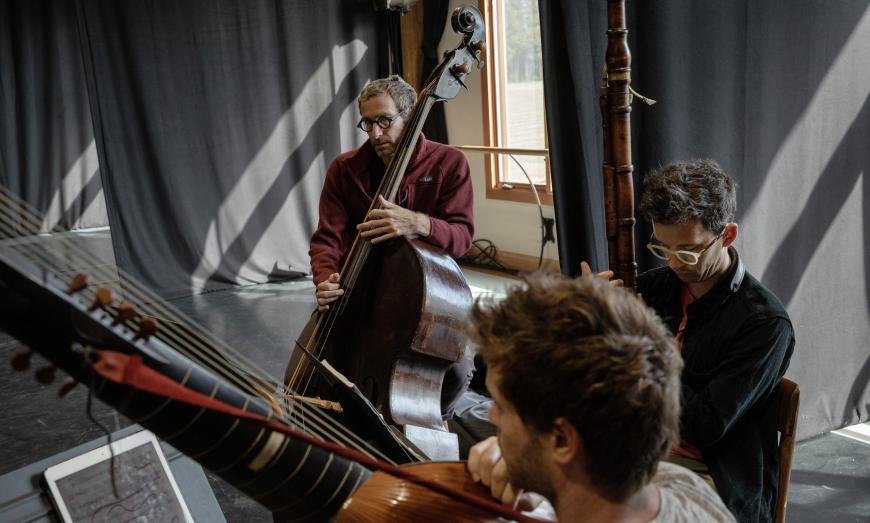
Zeller-Townson says that Ruckus has been experimenting with emptiness first and foremost. Often, continuo players default to florid, noodling rolls to underpin the singers they’re accompanying; when that filigree instead becomes a short hatchet chop, it creates a volatile void, perfect for the insidious scheming of enemies to Rodelinda and Bertarido’s Lombard throne.
The ensemble does plenty of outright rearranging, too. In several arias, the bassoon steals a violin’s theme. Figg mentions a particular Chopin-esque chord that he infuses throughout his accompaniments. The players even weave the clack of musical spoons through Handel’s percussion-less score.
In Schlather’s rehearsal room, the cast and crew are a collective rather than a hierarchy. “There’s zero risk of being told, ‘No, you’re wrong,’” says Zeller-Townson. When one singer expressed concern at following a “maestro,” Figg recalls, Schlather clarified: “This Ruckus, this is not a maestro. There is no maestro. We’re all in this together.”
And it’s that communal approach which shows Rodelinda’s Hudson Valley audiences what opera can be. In a place where world-class opera otherwise pops up on a one-off or summer-only basis, Schlather and his collaborators are pushing to give audiences a meaningful encounter with a medium that’s sometimes written off as inaccessible or antiquated. Above all, they want to display the things they love most about opera.
“U.S. audiences have this stylistic expectation for opera — it’s based on a kind of Franco Zeffirelli, PBS Great Performances fantasy of what opera is supposed to look like,” says Schlather. “It’s a kind of literal-mindedness that’s never going to jibe with opera. It’s a poetic medium, one of fantasy and interpretation, a mash-up of dramatic music and text and movement and spectacle. That’s what turns me on.”


